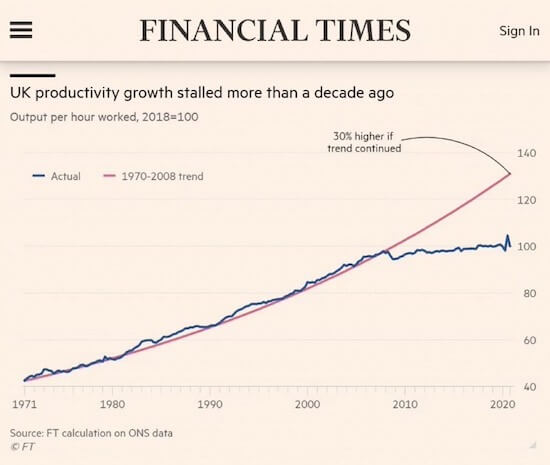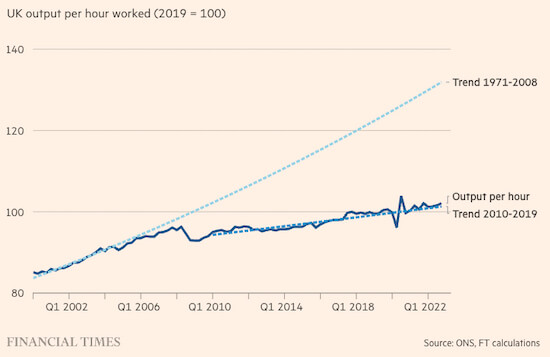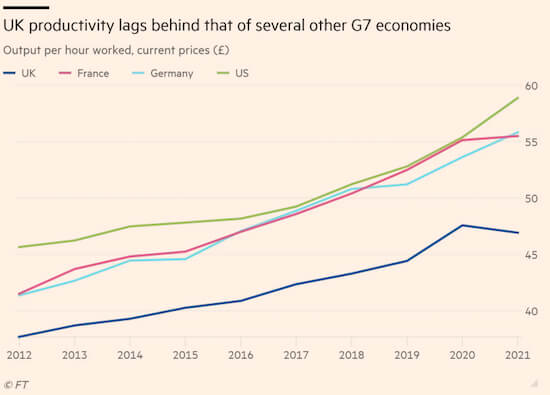
As I wrote about in a longer piece a few months ago, “The first step is admitting you have a problem“, yet one thing you won’t hear either the ruling or opposition parties in the UK talk about is this one simple truth:
The UK has a productivity problem.
The chart above from the FT very clearly shows that the UK dropped radically down from its long-term productivity growth trend at the time of the GFC around 15 years ago and has never recovered.
Another recent FT article, entitled “Will anything revive UK productivity?” (kudos to the FT for at least talking about this) also has a very similar chart that zooms in on the period 2010-2019, and also one more that shows quite how far the UK has fallen behind other G7 countries.
Again, the UK has a productivity problem.


The article by the FT talks about some potential shorter-term reasons why UK productivity has suffered, but, if we look to the longer term (and this has been going on for at least 15 years, many economists would say that core total UK productivity has been in decline since the extraction of economic value (a polite term) from the people and resources of the British empire tailed off then ceased.
Whilst I study economics widely and internationally, I won’t delve deeper here into that. My point today, instead, is to reiterate the human behaviour issue, the reticence we often have to take the first step in solving any problem, which is to admit you have one. Try it. Take a deep breath, talk about what needs to be talked about.
By the way, if you were to meet me for the first time at a networking event and ask me “So, what do you do?”, I generally answer “I herd elephants”. Though last week I said that and the hearty response was “Good thing, they had it coming!” (which we both laughed at), in general, it creates a follow-up question of “what does that mean?”, to which I respond along the lines of “there is always an elephant in the room, something people don’t like to talk about but need to address. That’s often what I am brought in for”.
